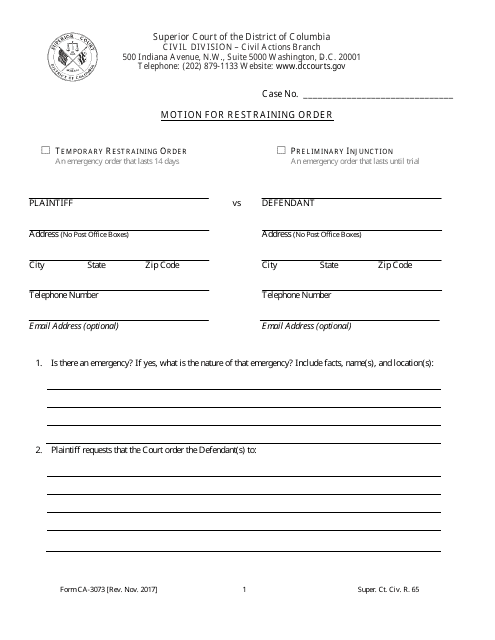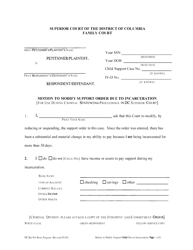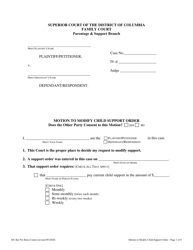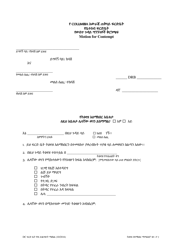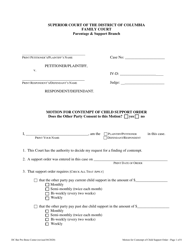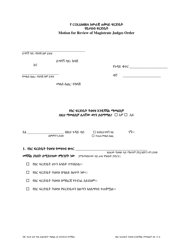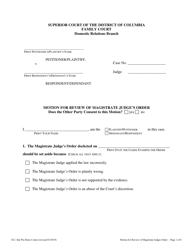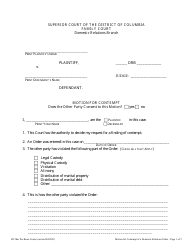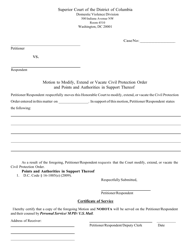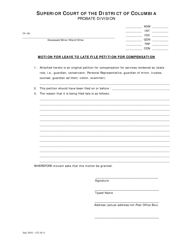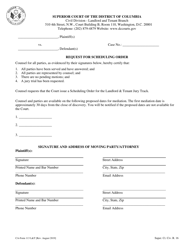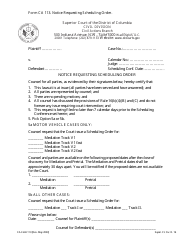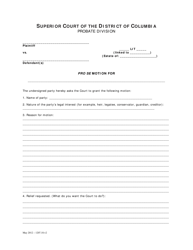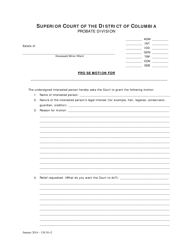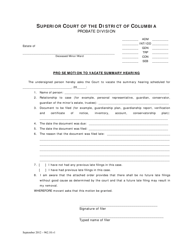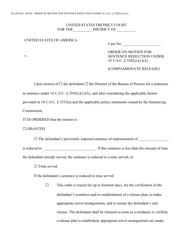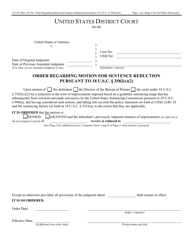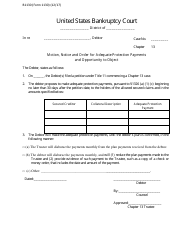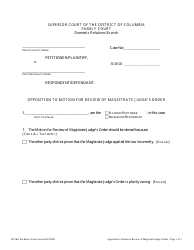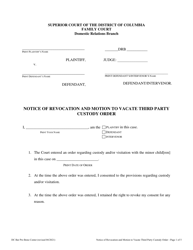Form CA-3073 Motion for Restraining Order - Washington, D.C.
What Is Form CA-3073?
This is a legal form that was released by the Washington DC Superior Court - a government authority operating within Washington, D.C.. As of today, no separate filing guidelines for the form are provided by the issuing department.
FAQ
Q: What is Form CA-3073?
A: Form CA-3073 is a Motion for Restraining Order.
Q: What is a restraining order?
A: A restraining order is a legal order that requires one person to stay away from another person.
Q: Who can file a motion for a restraining order?
A: Anyone who believes they are in immediate danger from another person can file a motion for a restraining order.
Q: What are the requirements for obtaining a restraining order?
A: To obtain a restraining order, you must provide evidence of a credible threat or danger.
Q: How long does a restraining order last?
A: The duration of a restraining order can vary depending on the circumstances, but they typically last for a specified period of time, such as one year.
Q: What happens after filing a motion for a restraining order?
A: After filing a motion for a restraining order, a hearing will be scheduled to determine whether the order should be granted.
Q: What should I do if the person violates the restraining order?
A: If the person violates the restraining order, you should contact the police immediately and report the violation.
Q: Can I modify or cancel a restraining order?
A: Yes, you can request to modify or cancel a restraining order by filing a motion with the court.
Q: Can I get a restraining order against a family member?
A: Yes, you can get a restraining order against a family member if you believe you are in immediate danger from them.
Q: Do I need a lawyer to file a motion for a restraining order?
A: You are not required to have a lawyer to file a motion for a restraining order, but it may be beneficial to seek legal advice.
Q: Is there a fee for filing a motion for a restraining order?
A: There may be a fee for filing a motion for a restraining order, but fee waivers are available for individuals who cannot afford to pay.
Q: Can I file a motion for a restraining order on behalf of someone else?
A: In some cases, you may be able to file a motion for a restraining order on behalf of someone else if they are unable to do so themselves.
Q: What should I bring to the hearing for a restraining order?
A: You should bring any evidence or documentation that supports your claim for a restraining order to the hearing.
Q: What happens if the restraining order is granted?
A: If the restraining order is granted, the person named in the order will be legally required to stay away from you and may face penalties if they violate the order.
Q: What happens if the restraining order is denied?
A: If the restraining order is denied, you may consider seeking other legal remedies or protective measures.
Q: Can I appeal a decision on a restraining order?
A: Yes, you may be able to appeal a decision on a restraining order if you believe there were errors in the decision-making process.
Form Details:
- Released on November 1, 2017;
- The latest edition provided by the Washington DC Superior Court;
- Easy to use and ready to print;
- Quick to customize;
- Compatible with most PDF-viewing applications;
- Fill out the form in our online filing application.
Download a fillable version of Form CA-3073 by clicking the link below or browse more documents and templates provided by the Washington DC Superior Court.
